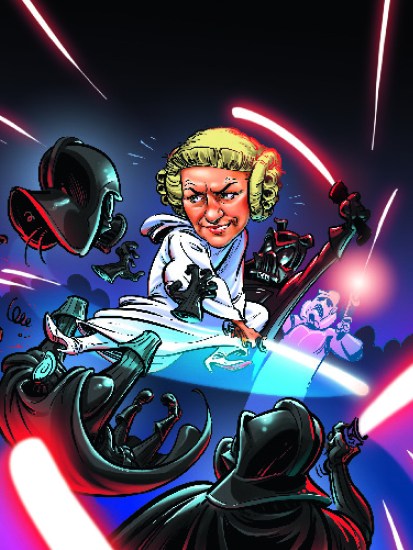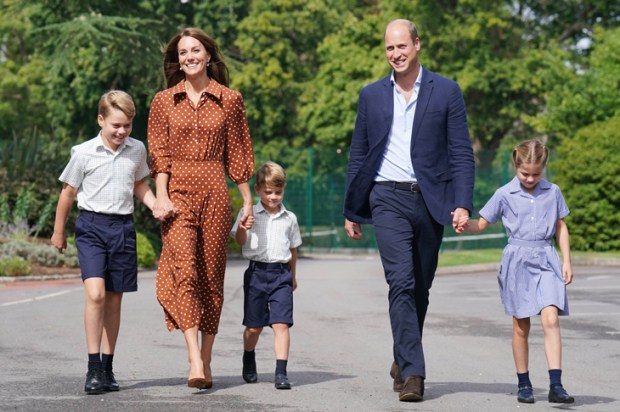The unsuccessful inquiry by the NSW Independent Commission Against Corruption into Margaret Cunneen was not only a spectacular own-goal, it was another manifestation of the long campaign against the eminent Crown Prosecutor. To many, she is a courageous fighter for the victims of crime against a stultified and uncaring establishment.
A wise government would today recommend her appointment to a Royal Commission to advise on how the criminal justice system should be reformed to protect the victims of crime and serve the broader community, as well as how corruption allegations could be handled without defaming the innocent and by actually bringing the corrupt to trial.
The fact is that public confidence in the criminal justice system has never before fallen so low. Two recent examples will suffice: nobody understands how it was possible that the terrorist Man Monis or Jill Meagher’s murderer were walking the streets free to commit more crime.
While the police are tied down by bureaucratic restrictions, the criminal justice system delivers what is too often injustice, and that at a glacial speed. The underlying assumption is that the jury, once the jewel of the system, is populated by men and women of an intelligence and discretion significantly inferior to the lawyer caste. This requires rigorous and minute controls on what they may hear and see. The rules about this are so technical and opaque that the trial judges seem to be in a state of constant error, leading to endless appeals to the system’s high priests, the appellate judges, with most of the costs being borne by the taxpayer.
All this was to be challenged when in 2005 the up and coming young Crown Prosecutor was invited to give the prestigious Sir Ninian Stephen lecture at the University of Newcastle. The text of such lectures normally ends up on dusty bookshelves. Instead, Ms Cuneen’s would make headlines. Central to it was a shocking story of a young victim, chosen because she was white and non-Muslim, who was gang raped by 14 Lebanese Muslim men over six hours. Not satisfied, they administered the ultimate degradation, hosing the girl down in a dark deserted industrial estate, and that on a winter’s night.
Expecting elementary and early justice, the victim became, as do so many victims of crime, a captive for years in our extraordinarily complex and technical legal system. She would watch in disbelief as every possible point was taken to ensure the jurors heard and saw nothing supposedly prejudicial to the cosseted accused. She would see every disputed question tested and retested at enormous public expense on a carousel of robed trial and appellate judges, senior and junior counsel, solicitors and clerks surrounded by trolleys containing records of evidence, transcripts and law reports.
There was once a time in our country when such a case would have been heard expeditiously before a judge and jury. If the jury found the defendants guilty the judge would proceed immediately to impose a sentence invariably commensurate with the offence. Unless there were some manifest injustice, there would have been no appeal. How different it is today.
Ms Cunneen’s lecture was a bombshell fired into the heart of Phillip Street. She put into clear language the question constantly asked in the nation’s pubs and living rooms: whether public confidence in the courts is being eroded by the perception that the pendulum had ‘swung too far in the direction of the protection of the rights of the accused person’.
‘There seems to be a fashion among some in the -criminal justice system,’ she dared to add, ‘for a kind of misplaced altruism that it is somehow a noble thing to assist a criminal to evade conviction.’
It wasn’t the question and comments which outraged the legal establishment. It was that it was being asked by someone they had assumed was a complicit insider.
John Marsden, at one time the leader of the State’s solicitors, called unsuccessfully for her dismissal. Other ways were soon found to punish her. Despite her eminence, and the many successes she had had as a Crown Prosecutor, she was for years refused elevation to the rank of Senior Counsel, a somewhat tawdry republican replacement of the ancient and honoured rank of Queen’s Counsel.
For daring to discuss the rape case in the lecture, a case which was still ricocheting through the legal system, the Court of Criminal Appeal took the unusual course of removing her as prosecutor. They justified this by reference to the Bar Rules, rules made by the barristers club or union−hardly a disinterested body.
Not only is the criminal justice system a shambles, so is ICAC. A significant part of that agency’s activities have been shown to be unlawful; it may well be leaking to journalist favourites which could constitute a serious breach of the law; through its public hearings it has grossly and unfairly damaged the reputation and careers of citizens who have committed no offence; and few of its disclosures have resulted in successful prosecutions. In this it demonstrates the same frailty which Fair Work Australia revealed in its slow and dragged out investigation of Craig Thomson. While the findings of both agencies dominated the front pages, the DPP typically finds them of little or no practical use in a real world prosecution.
The problem both with the criminal justice system and the investigation of corruption is there is little of the common sense, decency and good judgement with which the rank and file are endowed – once at the heart of English common law. Go back to the Magna Carta, to the history of the system we inherited. Trust the juries with the evidence. With the trial judge they will do the right thing. Stop the minute supervision by appellate courts.
And for corruption hearings do what the US Founding Fathers did. Preserve (in our case revive) that venerable English institution, the Grand Jury of 11 to 23 of the rank and file. Expeditiously and at minimal cost, they can hear the evidence in secret and decide whether a case should go to trial before a judge and smaller jury.
Got something to add? Join the discussion and comment below.
Get 10 issues for just $10
Subscribe to The Spectator Australia today for the next 10 magazine issues, plus full online access, for just $10.
You might disagree with half of it, but you’ll enjoy reading all of it. Try your first month for free, then just $2 a week for the remainder of your first year.














Comments
Don't miss out
Join the conversation with other Spectator Australia readers. Subscribe to leave a comment.
SUBSCRIBEAlready a subscriber? Log in